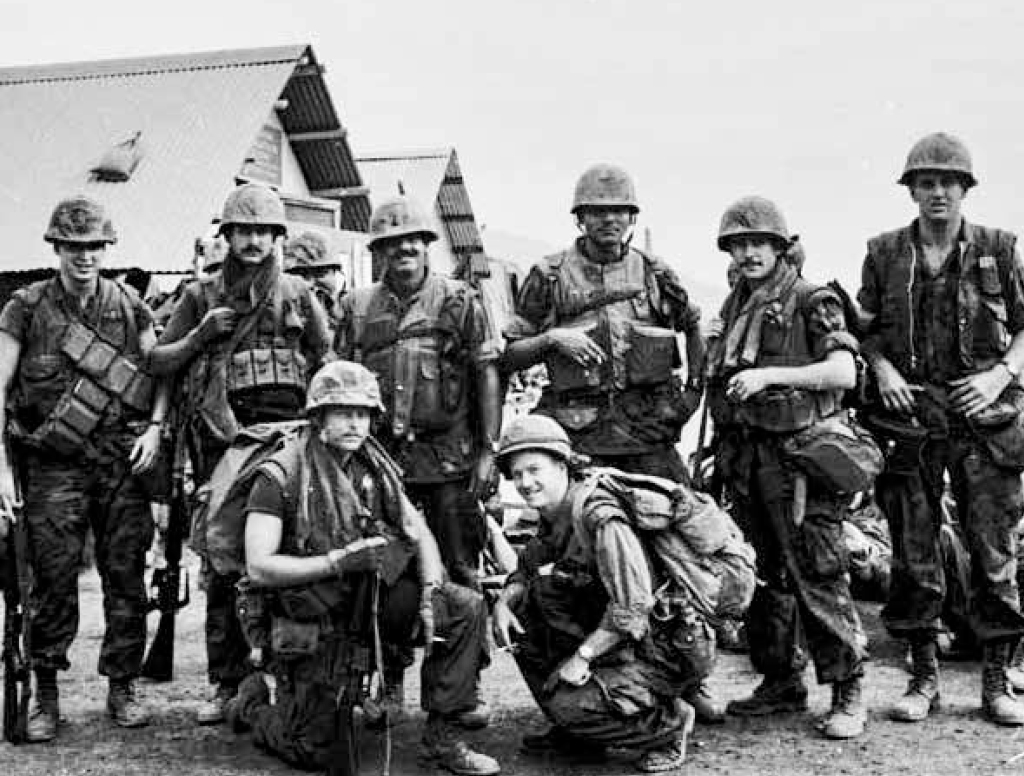
Attitude makes J. Richard Watkins’ 2011 Vietnam War memoir, Vietnam: No Regrets: On Soldier’s Tour of Duty (Bay State Books, 244 pp. $19.50, paper; $9.95, Kindle) stands out from other first-person stories of grunts in action. Watkins fearfully but voluntarily went to Vietnam in 1969 at the age of 22. Within six weeks, his fears of being killed transposed into feelings of elation when sent into battle.
During that time, he spent many sleepless nights on ambushes, avoided B-52 strikes, and helped to explore Viet Cong tunnels, but more importantly, Watkins was part of search and destroy missions humping through rice paddies and jungles, speeding in Brown Water Navy gunboats, and on helicopter assaults, which he found exhilarating.
Vietnam: No Regrets tells his story of serving with fellow Alpha Company grunts as an artillery spotter and radioman with the 25th Infantry Division’s 1/27 Wolfhounds in the Central Highlands, Iron Triangle, and east of Saigon out of Cu Chi. He also took part in the 1970 incursion into Cambodia. After ten months on the trail, Watkins accepted a rear-echelon job at the suggestion of his company commander. By then, his greatest fear was not being able to leave the adrenaline rush he found in combat behind.
Initially for Watkins, the Wolfhounds operated in a free fire zone. That mean they were free to shoot on sight and, in several cases killed Vietnamese who were not combatants. The Wolfhounds were not heartless, however. Watkins lauds the men who befriended him and introduced him to the wiles of warfare, especially his platoon leader, Lt. Barker.
Ambushes—in both directions—became a significant part of his life. He learned how to kill up close, regretted it at times, and tried to forget it. As an artillery pro, he doubled down as a rifleman when necessity dictated it, often more than that.
Exposure to gore and death hardened him to “tune out the possibility that I too could be wounded or killed,” he says. “I would just go with the flow of the situation. After awhile one doesn’t really believe he will be making it home anyway.”
His callousness toward himself did not extend to others, friend or foe. He viewed dead enemy combatants as people, just like anyone else who “had given their lives for a cause that they had believed in.” Scenes of dead soldiers remain with him to this day.
Joel Richard Watkins’ stories grow more interesting as his tour progresses. Life in the warzone became more complicated and survival more precarious. He found satisfaction in efforts such as destroying an enormous multi-level underground North Vietnamese base camp while recognizing the futility of the accomplishment.
Regardless, it all came down to “we were out there for the body count,” Watkins says, and recalls the days with no holds barred.
Vietnam: No Regrets includes 29 pages of photographs shot by Watkins.
—Henry Zeybel















